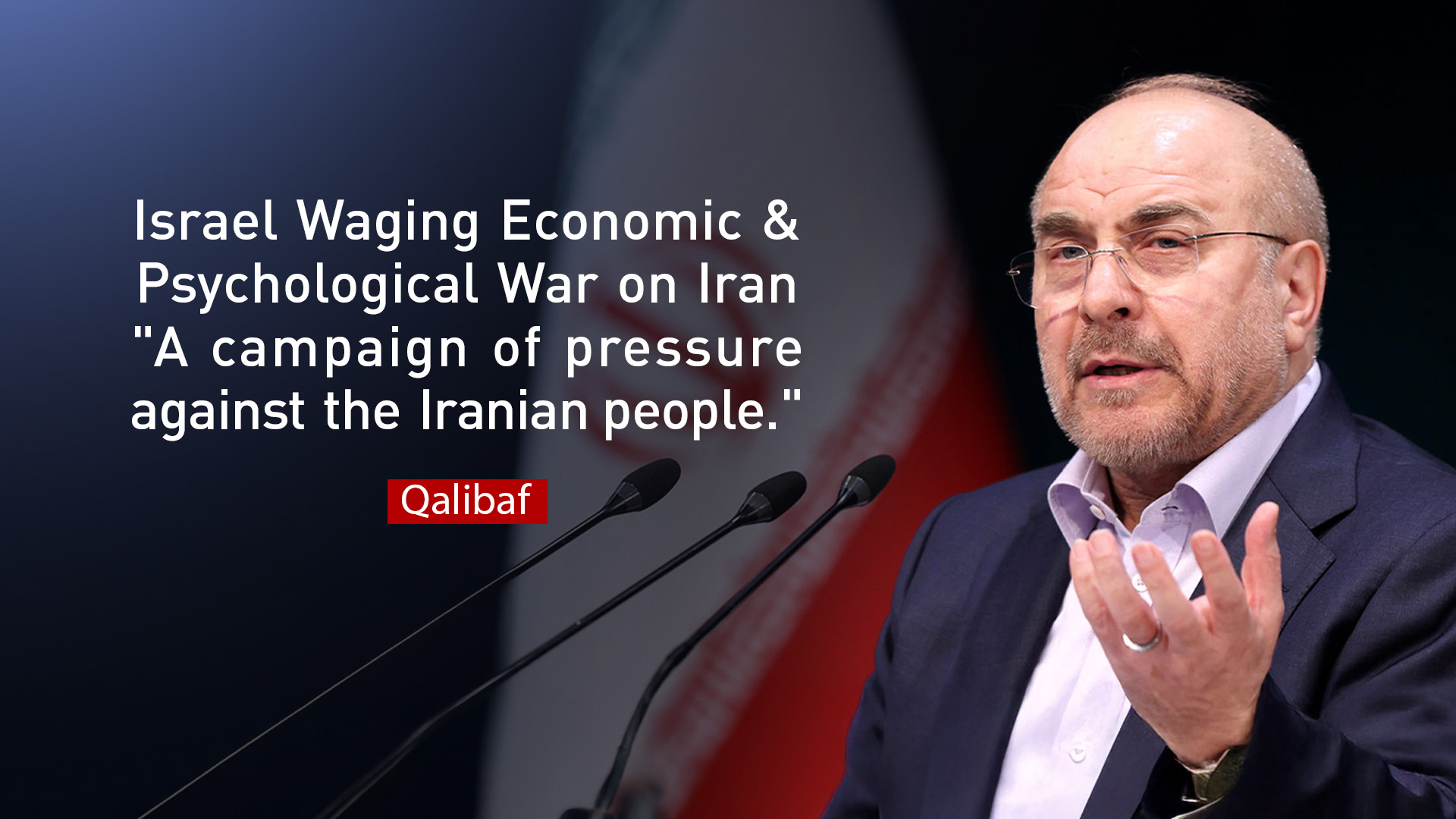Tehran's Top Lawmaker Accuses Israel of Waging 'Revenge' Economic War
Mohammad Baqer Qalibaf, Iran's Speaker of the Islamic Consultative Assembly, accuses Israel of "economic warfare" as revenge, calling for a national economic plan to counter the threat and blaming "puppet terrorists" for a recent attack in Zahedan, according to a report from Iran's IRNA.

ERBIL (Kurdistan 24) – Iran's Speaker of the Islamic Consultative Assembly, Mohammad Baqer Qalibaf, has accused the "Zionist enemy" of launching a campaign of "economic warfare and psychological operations" as retribution against the Iranian people, following a recent conflict where he said the nation showed unprecedented unity.
In remarks delivered during a public session of the assembly on Sunday and reported by Iran's official Islamic Republic News Agency (IRNA), Qalibaf asserted that the enemy is now seeking "to take revenge on the powerful and oppressed people of Iran."
According to the IRNA report, Qalibaf began his speech by offering condolences on the 40th day since the "martyrdom of our compatriots, brave commanders, and scientists" in what he termed the "Zionist regime's aggression during the imposed 12-day war." He stated, "With this criminal act, the Zionist criminal gang has once again proven that terrorism is its inseparable attribute, and in this, it makes no distinction between military and civilian, old and child, or man and woman."
The Speaker described the "Zionist enemy" as an "illegitimate child and cancerous tumor of the Western world," linking its actions to the conflict in Gaza and warning it must be stopped "before it plunges the entire region and the world into greater chaos."
Following this external threat assessment, Qalibaf declared it was now time for Iran's "commanders and economic officials in the country's government apparatuses to take the field." He framed the nation's internal economic challenges as a continuation of a "Sacred Defense."
Qalibaf, according to IRNA, outlined a national economic strategy guided by the "wise Leader of the Revolution," who he said assigned seven strategic tasks to executive bodies, demanding "seriousness, follow-through, and bringing the country's work to fruition." He identified resolving the country's energy imbalance in electricity, gas, and water as a "primary and urgent duty" for the government.
He stressed two priorities for this plan: first, to assure the public that the government has a "sensible, coherent plan that avoids shock therapy," and second, to ensure that the "first economic benefit from savings and increased efficiency goes to the people themselves."
Invoking the late IRGC commander Qassem Soleimani, Qalibaf told the assembly that every threat contains an opportunity. "The energy imbalance in our country is also the kind of problem that, if solved in a timely, prudent, and people-oriented manner, can itself be a powerful engine for our country's economy," he said, according to IRNA. He argued that solving the energy issue would improve efficiency, boost exports, and ultimately increase the purchasing power of the people.
The speaker also called for the continuation of electronic ration cards, while specifying that issues with their database and income-level bracketing must be resolved to reduce economic damage, "especially for the lower income brackets."
Shifting to industrial policy, Qalibaf praised Iran's major industries as "front-line soldiers in the defense of this country" and called on the government and Central Bank to provide them with "maximum support and backing." He pointed to new legislation, including the "Law on Financing Production and Infrastructure" and the "Law on Taxing Profiteering and Speculation," as key tools. He described the latter as a strategic law for reforming the economic structure, combating brokerage, and directing capital toward production, which he said will "improve the business environment."
The IRNA report also covered Qalibaf's comments on a recent attack in southeastern Iran. He referred to the "blind terrorist crime in Zahedan" as "revenge against the people" for their unity against "the military aggression of the Zionists and Americans."
"The shedding of the blood of seven-month-old Navid in his mother's arms is another document attesting to the oppression of the Iranian people," Qalibaf stated, vowing that Iran's armed and security forces would "decisively" confront the perpetrators.
At the end of his address, IRNA noted that Qalibaf offered condolences for the passing of Ahmad Tavakkoli, a former member of the Islamic Consultative Assembly.
